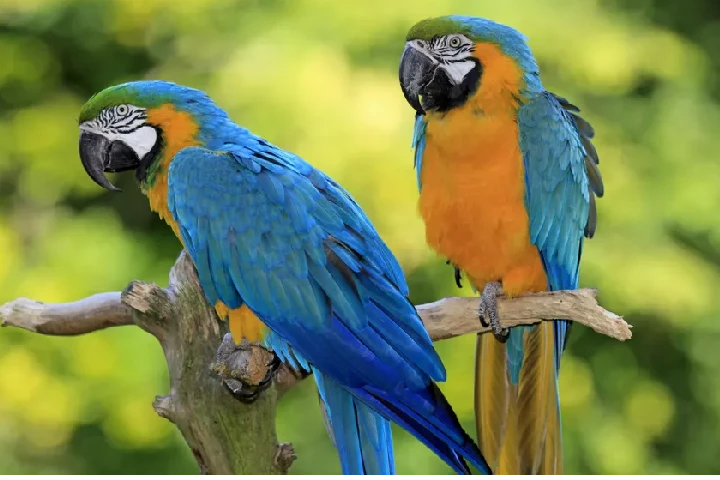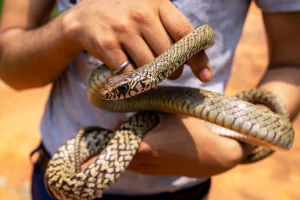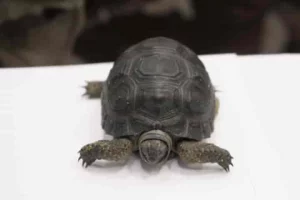In a first-ever study done recently by the University of Guelph it came to light that the smarter a bird is, the more care it needs to cater to its unique attributes. Dr. Georgia Mason draws this conclusion in an article in Smithsonianmag.com, that his findings may apply to other brainy creatures who have been kept captive. These include elephants, whales, great apes among others.
Mason is the lead author of the study and the Director of U of G's Campbell Centre for the Study of Animal Welfare. The professor in the Department of Integrative Biology remarked: "This study provides the first empirical evidence that intelligent animals can struggle in captivity.”
During the research another vital fact was also discovered for the first time. Greater intelligence is a benefit when the creature is in the wild but it hampers adjustment in confinement of the large-brained parrots.
This is significant as almost half of parrots of the world are now in homes, zoos and breeding facilities.
As per Mason: "What's new in this study is that we're showing why some species are at risk and others are fine." The Proceedings of the Royal Society B, carried the study this week highlighting the necessity for cognitive stimulation and foods that are necessary for extra complicated physical handling in order to improve and better the care of the birds.
The other authors of this study are Heather McDonald, a former U of G PhD student, now with Mount Sinai Health in Toronto, and researchers from the University of Bristol in the U.K. and Utrecht University in the Netherlands.
Also read: Unfazed by a broken beak, survivor Parrot overcomes disability in style
This team of scientists had two main data sources to examine.
The first was a survey of the early 1990s on captive breeding success which involved more than 30,000 birds in the United States.
They also did an online survey in which 1,400 pet parrots of 50 species were involved. What they looked for is stereotypic behaviour, or abnormal activity including biting at cage bars, chewing or even eating feathers, and swaying, bouncing or rote pacing in cages.
Further the team also examined the housing conditions, brain size-body weight ratios which is a marker for intelligence, food, etc. All this was analysed thereby enabling evolutionary biologists to draw those inherited attributes that predispose species to risk.
It was realised by the team that those creatures whose natural diet consists of nuts, seeds and tough-coated insects were more prone to pluck, chew or even consume their feathers. That made those species of parrots which had relatively large brains more at risk for other types of stereotypic behaviour.
Based on this perception, the team recommends that people who own domestic birds must provide a more naturalistic diet than processed foods. In the wild the parrots on a typical day use 40 to 75 per cent of their time in foraging.
Also read: Kakapos – night birds that survived even after inbreeding
The birds said Mason may have evolved a need to bite and control with their beaks. This is so even when the food offered to them is ready-processed and given in a bowl. Or they require particular nutrients in their natural diets.
On this aspect, Mason said: "We don't know which is the most important to feather-plucking birds. So ideally owners should provide naturalistic food items intact so that parrots really have to break their way in and do extractive foraging as they do in the wild."
Those who do well in domestic environs include birds like Cockatiels, Jandaya parakeets and yellow-naped Amazons but when it comes to Nanday parakeets, monk parakeets and some cockatoos which are relatively large-brained, they undergo more psychological welfare problems. Elaborating, Mason said: “These intelligent species are more invasive, too — another reason to treat them with extra care.”
Parrots are generally highly social but as pets they are kept alone and in some instances in monotonous and predictable conditions. “Some species seem to adapt well to captivity, but maybe some should not be kept unless you have lots of time and creativity,” averred Mason. She added that those owning such pets should provide more stimulation. This includes naturalistic aviaries; and also puzzles and other enrichment items.
Highlighting this Mason said: "Good parrot carers are doing this already. But if you're new to parrots, pick a species likely to thrive. Don't pick parrots that are not a good fit for your place and lifestyle."
This study assumes critical significance as half of the world's estimated 100 million parrots are in captivity, with a majority of them in private homes. Also more than 40 per cent of those in the wild are threatened or near threatened.
Summing up, Mason said: “It's really important from a conservation point of view to have good parrot welfare."




















